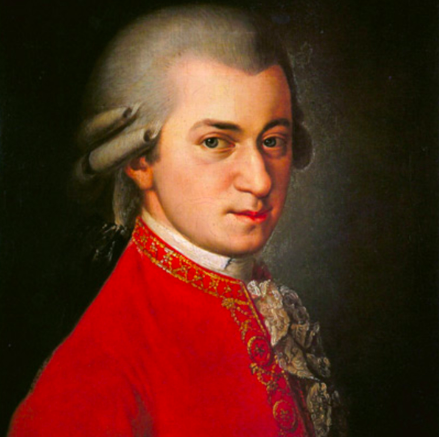Mozart and “Miserere Mei, Deus”: Unmatched Musical Genius

Photo Courtesy of biography.com
Wolfgang Amadeus Mozart
October 30, 2018
Wolfgang Amadeus Mozart is widely considered to be one of the greatest musical geniuses to live. A child prodigy, who was excellent at playing music before even reaching the age of 10, Mozart has many interesting stories surrounding his life. One such story, being perhaps the most fascinating one, is the story of “Miserere Mei, Deus.” This song, translated as “Have Mercy on Me, O God,” was a song composed during the reign of Pope Urban VIII in the early 1600s. It was written by a man named Gregorio Allegri, for use exclusively in the Sistine Chapel. It was played as part of the exclusive Triduum services around Easter Time. Thus, no one could reproduce it or play it anywhere else, as only the Sistine Chapel had access to the song. It was forbidden to transcribe or play the music anywhere else, and doing so would result in excommunication. It remained a secret for nearly 150 years.
This is the point where 14-year-old Mozart comes in. While visiting Rome, Mozart went to the Sistine Chapel and heard the song. He was enchanted by the beautiful music. Later that day, Mozart went home and, amazingly, wrote down the piece entirely from memory. You may be thinking, what is so impressive about this? However, this shows how much of a true musical genius Mozart was. Transcribing a song is incredibly difficult, especially hearing it only one time. It is very easy to mess up similar sounding notes, and remembering the song from only one listen is also incredibly challenging. However, what I just told you was the difficulty of transcribing a normal song. What Mozart transcribed was “Miserere Mei, Deus”, a 15 minute long, 9 part choral song. Essentially, Mozart transcribed 9 different lines of melody, playing all at once for 15 minutes straight, from his own memory after hearing the song only once. Not only was he able to transcribe the song, but he also did it nearly perfectly in one try.
Mozart would go back a few days later to make corrections to his transcription. Eventually, it was discovered that he had made this piece. However, Mozart was never punished. Instead, the Pope summoned him and commended him for his immense feat of musical genius. It is debated whether this story actually ever happened as a 14-year-old boy being able to make such an accomplishment is certainly suspect. While perhaps it cannot be proven, it is certainly a fascinating story and cements Mozart as a true genius of music, nearly unmatched in all of history.

Rick S • May 24, 2022 at 1:00 am
There are savants that can do this. While extremely rare, savantism can occur in high functioning individuals. Daniel Tammet is a rare example of high functioning autistic savantism.
I don’t know if Mozart was on the spectrum, but he certainly seems to exhibit signs of high functioning, prodigious savantism. It is not unbelievable at all.